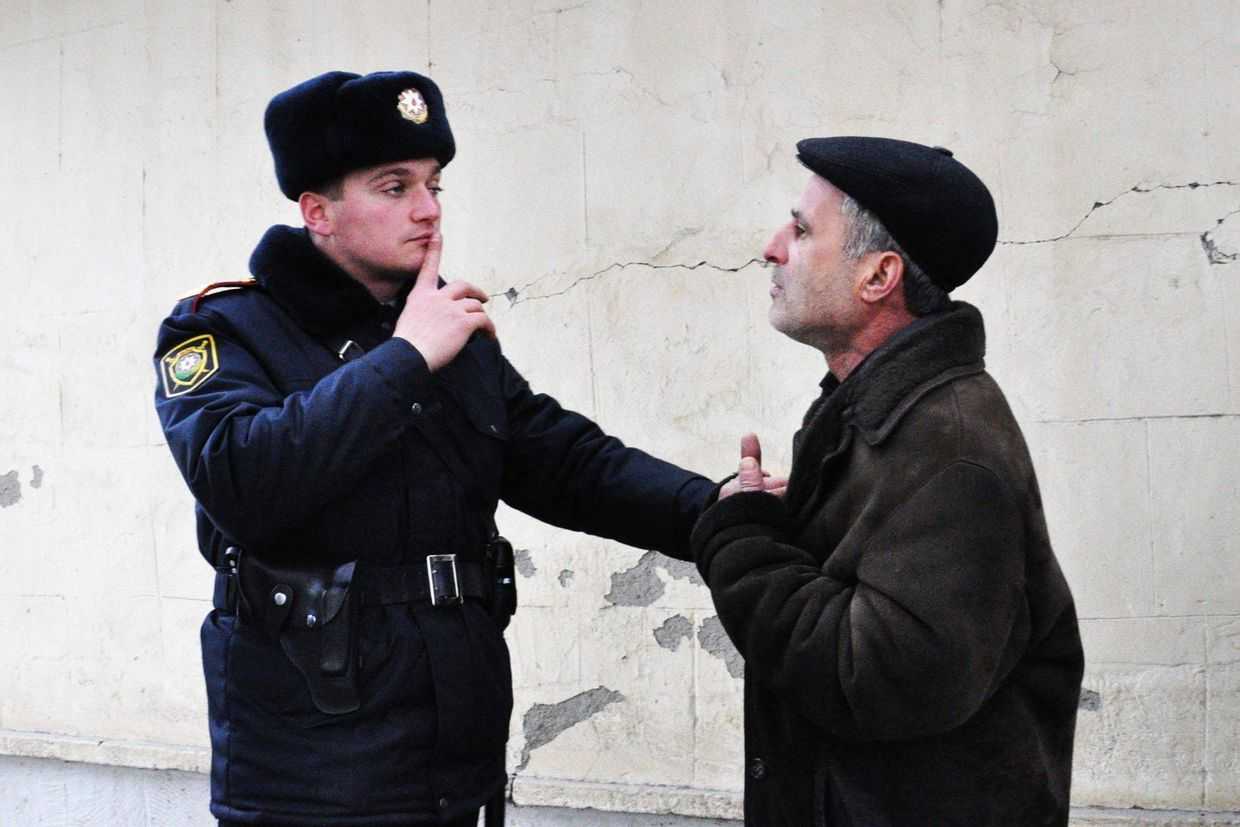
Islam Melikov was born in Baku and spent the past three decades living in Kharkiv. OC media spoke with him about his escape from the Ukrainian city and his thoughts on the war at a refugee shelter near the Polish-Ukrainian border.
I spoke to Islam Melikov at the Juliusz Słowacki 1st General Secondary School in the Polish border town of Przemyśl where he was staying with his wife, his daughter, and his granddaughter — recuperating before undertaking further travel towards Germany.
Islam, an ethnic Azerbaijani who was born in Baku, has lived in Kharkiv, Ukraine’s second-largest city for the last three decades.
‘We arrived in Poland yesterday night at 18:00’, he tells me.
‘If I was alone, I’d stay there [in Ukraine]. But with little kids, it’s different’, his granddaughter Leila, is only 16 months old.
‘The kids were so afraid’, he said. ‘This little one, she doesn’t even walk yet.’
Less than two days before his arrival at Juliusz Słowacki, he and his family were in a tight crowd of hundreds at Kharkiv’s main train station. Before that, they spent six days in an improvised bomb shelter — the basement of a local school.
He shudders as he recalls the family waiting for the evacuation train to arrive.
‘An uncountable number of people, pushing each other’, he told me. ‘Horror. Sheer horror.’
Then, as the crowd jostled, everyone trying to get to the platform, the sound of an explosion.
‘A shell had exploded near the train station. Glass shattered in half of the station. People began to panic’, Islam said. ‘I thought I had no more strength left. I can’t do it anymore. But somehow, you know, there must be a god, it was as if I was filled with strength anew.’
Trying to escape a crowd crush, the Melikov family began to push towards the tracks, clambering over railings. Meanwhile, a train was pulling in on the first platform. By a ‘miracle’ they reached the tracks, the Melikovs climbed down to track level and up again, in the direction of the waiting locomotive.
They made it on the train just in time.
‘They will never forgive the Russian people’
The invasion took Islam, like so many others, by complete surprise.
‘No one expected this’, he said.
‘For for the first three days we thought: Kharkiv has always been a Russian-speaking city. I’ve lived there for 30 years and I have never heard Ukrainian spoken — оnly in 2014, after Maidan and the revolution, did some people in shops start speaking Ukrainian.’
Since 24 February, Kharkiv has been one of the cities hardest hit by the Russian assault, with countless shells and missiles falling upon the city of 1.4 million.
‘That scumbag [Vladimir Putin] is bombing peaceful residents with ballistic missiles and vacuum bombs’, Islam says, anger briefly flashing over his face. ‘That is prohibited [by international law], but he tells the whole world to fuck off.’
What Islam saw in Kharkiv, now makes him think that ‘this generation’ of Ukrainians will ‘never forgive the Russian people’. The Russian public, he says, has been brainwashed by Kremlin propaganda — including his own relatives, who could not believe the Russian army would bomb Kharkiv.
‘I have three uncles in Russia, the night of the bombing I called them and told them what happened’, he recalls. ‘But their media shows them something different.’
For Islam, Russian President Vladimir Putin alone bears the lion’s share of the blame, though he also blames the Russian people for not rising up against him.
‘If 30% of the 140 million [Russian citizens] rose up, they’d deal with Putin. But they don’t want to’, he sighs. ‘But still, people don’t live forever.’








